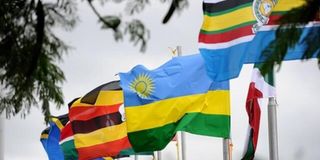Banks urged to support agribusiness recovery

Arusha. Banks have been requested to provide liquidity to enable the struggling agri-businesses to recover from the impact of Covid-19.
An economic stimulus has also been proposed to help the agricultural producers hit by production and export shocks.
“Funds are needed from the financial institutions to provide liquidity,” said the East African Business Council (EABC) on its latest report Covid-19’s impact to the agricultural sector.
The apex body of private sector associations in the region said agriculture which employs the majority has suffered considerably from the pandemic.
This is the latest in a series of reports that have been issued by the Arusha-based body since the region first tested the impacts two months ago.
The report availed to The Citizen stressed the need for a swift intervention to protect hundreds of thousands of jobs to be lost due to Covid-19.
Agriculture is a source of livelihood for about 80 per cent of the rural population in East Africa, dominated by small holder mixed farming.
The sector accounts for about 36 per cent of Gross Domestic Product (GDP) in the East African Community (EAC) economy.
Agriculture accounts for 29 per cent of GDP in Tanzania, 65 per cent of employment, 65 per cent of raw materials to the industrial sector and 30 per cent of export earnings..
In Kenya, it accounts for 22 per cent of GDP and 56 per cent of the total labour force while in Uganda it caters for 25 per cent of GDP and 65 per cent of total jobs.
For Rwanda and Burundi, 70 per cent and 80 per cent of the population in the two states are engaged in agriculture and account for 33 per cent and 41 per cent of their GDP’s respectively.
Recent statistics from South Sudan are not available. The country is, however, much dependent on oil for its foreign trade.
EABC, which has an observer status to the Community, insists that the agricultural food and supply chain must be protected.
It wants the EAC partner states to liberalize their airspace so as to allow international and regional cargo carriers to “pick consolidated products for export from each EAC state”.
An agricultural sub-sector hard hit by Covid-19 outbreak is horticulture which, according to EABC, has led to sharp decline of exports.
It cited Kenya, whose 170 horticultural farmers lost KSh. 250 million ($ 2.7m) a day in March after massive cancellations by importers abroad.
However, the situation has improved from last month with flower exporters disposing off 20 per cent of products compared to 80 per cent when export markets had enforced strict lockdown.
Coronavirus is also reported to have disrupted tea exports through auctions by the East African Tea Trade Association (EATTA) for 10 states in the region.
“The disruptions of the tea auctions is expected to have a great repercussions on the entire value chains of tea across the region”, the report said.
The Covid-19 impact to EA’s agricultural sector comes on the heels of a recent report by the World Bank which predicted a 2.6 to seven per cent fall in agricultural production in the region.
The situation would be compounded by the desert locust invasion in three of the six partner states -Kenya, Uganda and South Sudan.




